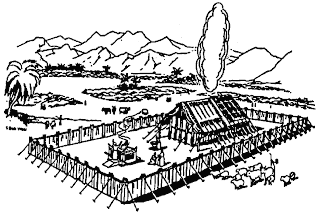
Imagine the scene, after a rough day at work you put your kids to bed, after returning to your room and reciting the hamapil prayer, your child begins to cry insistently. You jump out of bed and turn on the lights. Running to the childs room you realize that you had already said HAMAPIL!
Are you allowed to sing your child back to sleep? Can you verbally bribe your child child to sleep?
Unfortunately there is little to no time to think about the Halacha, what do you do?
Although the act of sleep is sometimes involuntary, the laws that surround it and the prayer that must be said beforehand require a deeper analysis.
The major requirement of the recitation of Shma at night, before going to sleep, is the act of saying the blessing of Hamapil.
The Mishna Brura (239:3) while quoting the Seder Hayom (order of the day) says that one is supposed to recite Hamapil during the final seconds before closing his/her eyes at night.
Although we do not rule in accordance with this opinion we do try to say hamapil as close to this time as possible. In the best case scenario a person should try to prepare accordingly so there is little to no interruptions between the recitations of Hamapil and sleep itself.
Unfortunately for some, sleep only comes after hours of tossing and turning!
How should these people appropriate the blessing of Hamapil, while distancing themselves from a hefsek?
Halacha dictates that if one forgot to daven Ma’ariv, say Bracha Achrona, or count Sefiras HaOmer, at night and mistakenly said Hamapil he can recite whatever Tefillah or Bracha that he missed and does not have to worry even though he already said Hamapil.
Based on this many contemporary Poskim come to the following Halachik conclusion: One who uses the bathroom after saying Hamapil says an Asher Yatzar afterward or if he/she hears lightening then the appropriate bracha most definitely should be said.
(As an aside, if one needs to say Hamapil in another place aside from his/her bed then it is permissible, being that we do not care about shinui makom (change of location) by this particular bracha.
Being that all of the above is allowed to be preformed after saying Hama’apil, there is almost no excuse that could excuse a person from saying krias shema at night.
There are still those however (Tos. Brachos 11b) who say that regardless of all that we have said above, one may say hamapil and continue with his night as he pleases. Tosafos comes to this conclusion by explaining the mizvah of Sukkah. When one eats in a Sukka he has a mitzvah to say a bracha of “Leishev Basukka”, why is it that when one sleeps in the Sukkah he does not have the similar mitzvah to recite a “Lishan Basukkah”?
Tosafos answers that because of the possibility of rainfall one might recite the bracha and then go inside to sleep. Some Poskim use this Tosafos as a proof for it being permissible for one to talk after reciting Hamapil.
Hopefully now after knowing a few of the sources about Hamapil you will be able to come to an educated decision about how to properly prepare for sleep at night.
*Please speak to your Rav before putting any of the Halachik ideas that are discussed above into practice.
*Click on the Title of this post to have a better understanding of what defines being "asleep".























